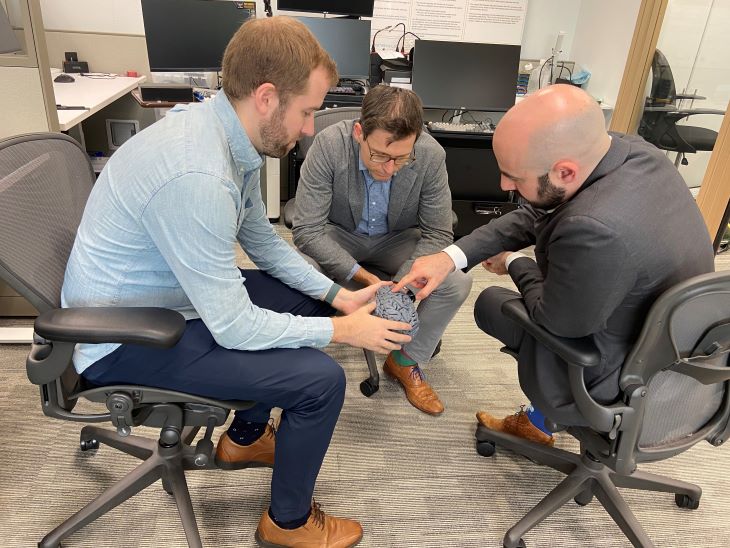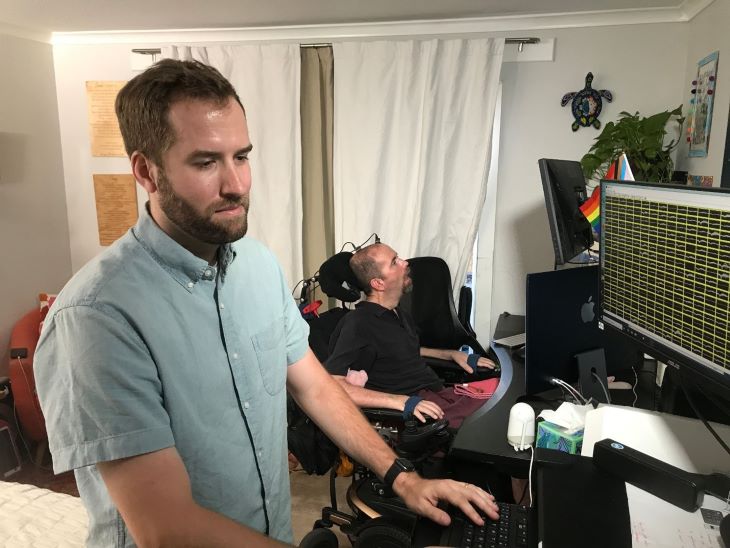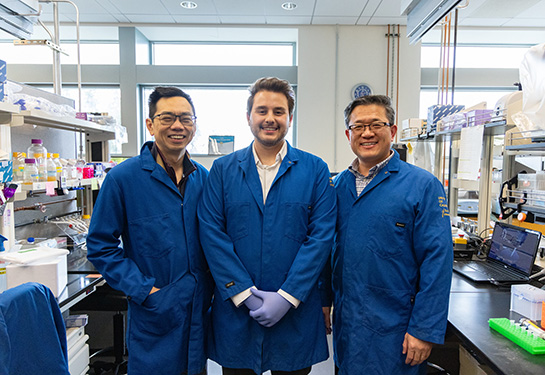Brain-computer interface study wins 2025 Top Ten Clinical Research Achievement Award
Neurosurgeon David Brandman recognized for impactful clinical research to restore speech to ALS patients
UC Davis Health is pleased to announce that Neurosurgeon David Brandman and his team at UC Davis Neuroprosthetics Lab were selected for a 2025 Top Ten Clinical Research Achievement Award. The Clinical Research Forum presents this award to honor 10 outstanding clinical research studies published in peer-reviewed journals in the previous year. This year’s Top 10 Awards ceremony will be held on April 14 in Washington, D.C.
Brandman and his team are recognized for their groundbreaking work in developing a new brain-computer interface (BCI) that translates brain signals into speech with up to 97% accuracy — the most accurate system of its kind. Their work was published in the New England Journal of Medicine.
“Our team is very honored that our study was selected among the nation’s best published clinical research studies. Our work demonstrates the most accurate speech neuroprosthesis (device) ever reported,” said Brandman, co-director of the Neuroprosthetics Lab. He is an assistant professor in the UC Davis Department of Neurological Surgery.
The BCI study’s co-principal investigator is UC Davis Neuroscientist Sergey Stavisky. Stavisky is an assistant professor in the Department of Neurological Surgery and co-director of the Neuroprosthetics Lab. The study’s lead author is Nicholas Card. He is a postdoctoral scholar at the UC Davis Department of Neurological Surgery.

A brain-computer interface that translated brain signals to speech
The new BCI technology is being developed to restore communication for people who can’t speak due to paralysis or neurological conditions like amyotrophic lateral sclerosis (ALS). It can interpret brain signals when the user tries to speak and turns them into text that is “spoken” aloud by the computer.
In July 2023, Brandman implanted sensors in the brain of a man with severely impaired speech due to ALS. The man was able to communicate his intended speech within minutes of activating the system.
“This technology is transformative because it provides hope for people who want to speak but can’t. I hope that technology like this speech BCI will help future patients speak with their family and friends,” Brandman said.

Selection criteria for the Top 10 Clinical Research Achievement Award
The Clinical Research Forum is a well-regarded organization that advances and highlights clinical research from across the United States. Each year, it conducts a national competition to determine 10 outstanding clinical research accomplishments. These major research advances represent a portion of the annual return on the nation’s investment in the health and future welfare of its citizens.
“The Top 10 Clinical Research Achievement Awards honor and celebrate the innovation, tireless efforts and profound contributions that clinical researchers and advocates have made on the health and wellness of humanity,” said Harry P. Selker, chair of the Clinical Research Forum and dean of Tufts Clinical and Translational Science Institute at Tufts University. “We congratulate the 2025 awardees for their outstanding efforts.”
UC Davis Health Vice Dean for Research Kim E. Barrett nominated Brandman for this award.
"The work done by Dr. Brandman and his team, including his research partner Sergey Stavisky, has been nothing short of remarkable. The technologies they have developed offer real hope to change the lives of those who have been robbed of their power to speak intelligibly by diseases such as ALS,” said Barrett, distinguished professor of physiology and membrane biology at UC Davis.
The BCI study is part of a BrainGate2 clinical trial. The trial is still enrolling participants. Brandman is the trial’s site-responsible principal investigator. A complete list of study’s coauthors and funders is available in the New England Journal of Medicine article.
Related Stories:
New brain-computer interface allows man with ALS to ‘speak’ again
UC Davis Health received 2022 Top Ten Clinical Research Achievement Award



